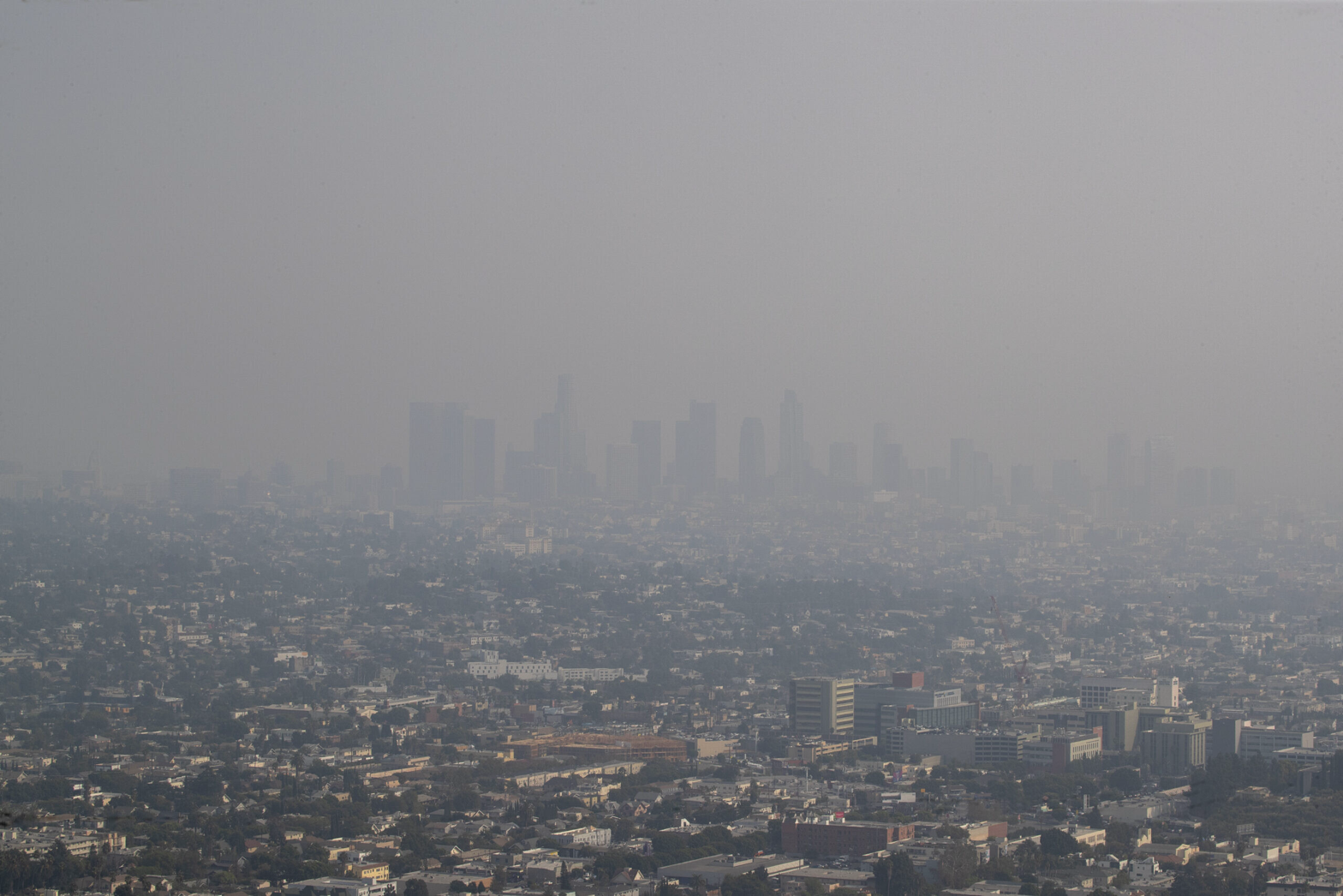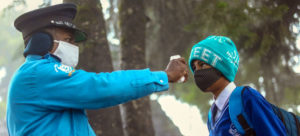The most severe impacts are felt in the Western United States, where increasing wildfires have worsened air pollution. People of color are also disproportionately affected.
Roughly one in five Americans lives in counties that have high, unhealthy daily levels of pollution from manufacturing soot, vehicle exhaust and other fine particles, according to a new report from the American Lung Association.
The findings, part of the lung association’s annual “State of the Air” report, also indicated that more people are residing in such high-pollution areas nationwide than at any other time in the past decade. The report, which the lung association calls a “national report card on air quality,” is based on data compiled from electronic air quality monitors across the country.
The report also found that people of color disproportionately reside in communities with harmful air. About 64 million people of color live in areas that have received at least one failing grade from environmentalists for ozone or fine particle pollution, the report found.
The lung association’s review also found that more people are being exposed to high levels of fine particle pollution for longer periods, especially in the Western United States. Among the 25 American cities that have the unhealthiest air, the average number of days that residents were exposed to high levels of particle pollution increased to about 18 days from about 16 days since last year’s report. All but two of the 25 worst cities for daily particle pollution were located in the Western U.S.
Taken together, experts said, the findings in the report underscore just how far the nation has to go in remediating the effects of the worst kinds of airborne pollution. Despite years of increased environmental regulations around air quality, environmentalists, researchers and others agreed that much more needs to be done.
“This is not a question about air quality being a stable condition in the United States or in the world,” said Bobby Mahajan, a pulmonologist who serves as a national spokesperson for the lung association. “We’re trying to do our best to improve it. The problem we run into is that people are getting more affected and becoming more challenged with the air quality that we’re seeing as a result of global warming, changes of pollution.”
Mahajan said that those who study the effects of air pollution on public health have seen increases in instances of respiratory illnesses such as asthma and chronic obstructive pulmonary disease, or COPD. “Meaning that people’s lungs are more sensitive, and they can become triggered with underlying COPD or underlying asthma,” Mahajan said, noting that experts are concerned about “the number of patients who are saying that they are affected on a regular basis by changes in air quality in terms of their breathing and shortness of breath.”
Mahajan noted that Western states are particularly affected by harmful air quality because of historical factors such as vehicle emissions and also because of wildfires that are often concentrated in the region.
California cities come to mind more often in these kinds of reports “because the degree of wildfires is significantly higher than we’ve seen 10 to 15 years ago,” Mahajan said. “Again, part of that is the effects of climate and global warming. The challenges we run into is when we end up seeing significant wildfires. Not only does it produce a significant amount of smoke, but that smoke tends to linger.”
Lingering smoke, Mahajan said, often leaves “irritants or pollutants in the air that are directly exposed to our lungs. They can not only exacerbate underlying diseases—like we talk about asthma and emphysema—but what they also do on top of that is they can result in worsening underlying diseases that patients didn’t have before, like reactive airway diseases,” including COPD.
In addition to lung ailments, researchers said that poor air quality caused by wildfires can also increase instances of pre-term births. Anne Waldrop, an OB/GYN fellow at Stanford University, is the lead author of a study that found an association between exposure to wildfire smoke and pre-term births.
Waldrop reviewed the health data of more than 2.5 million pregnant people in California and found that 86 percent of pregnant individuals were exposed to at least one day of wildfire smoke through the first 20 weeks of gestation, with an average exposure of 7.5 days.
“In doing this study, it really showed me that we have more questions than answers that are left because there’s been so little perinatal outcomes research in this setting, specifically wildfire smoke exposure,” Waldrop said in a recent interview.
The proliferation of wildfires is a sign of something else, experts said: the effects of climate change.
“Climate change is showing up in this report,” said Laura Kate Bender, a national vice president at the lung association who focuses on healthy air. “We know climate change can enhance the conditions for ozone pollution, which we’ve seen in some recent reports, but we know that climate change is also driving wildfire seasons and more intense wildfires.”
Regarding the effects of air pollution on communities of color, experts said, it is yet another vestige of Jim Crow.
“We know that due to factors like systemic racism, people of color still are living in areas with the worst air pollution,” said Paul G. Billings, a national expert on public policy at the lung association. “Often they also live near big localized sources. So ports, freight hubs, major highways, refineries, power plants, chemical factories. We know that people of color are breathing dirtier air. And it’s leading to much worse health outcomes for those individuals and their families.”
Andrea Marpillero-Colomina, a sustainable communities program director at the advocacy group Green Latinos, noted that vehicle emissions often play a role in the air quality in communities of color.
“The highest proportion of greenhouse gas emissions in this country come from vehicles,” Marpillero-Colomina said. “They’re coming disproportionately from heavy duty vehicles—not local community vehicles. They’re not cars that people are driving in their neighborhood. They’re vehicles that are driving down highways and down freeways. And because of decades of environmental injustice, We know that those vehicles are driving on roadways that are disproportionately in Black and Latino and other frontline communities.”




